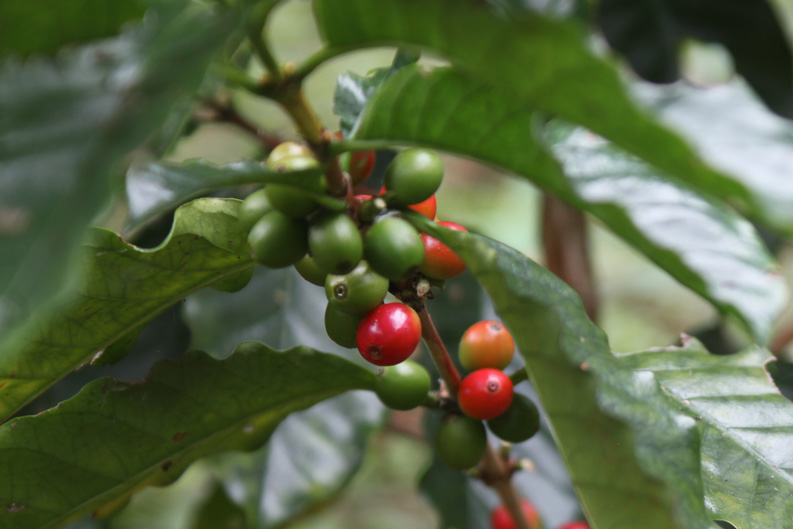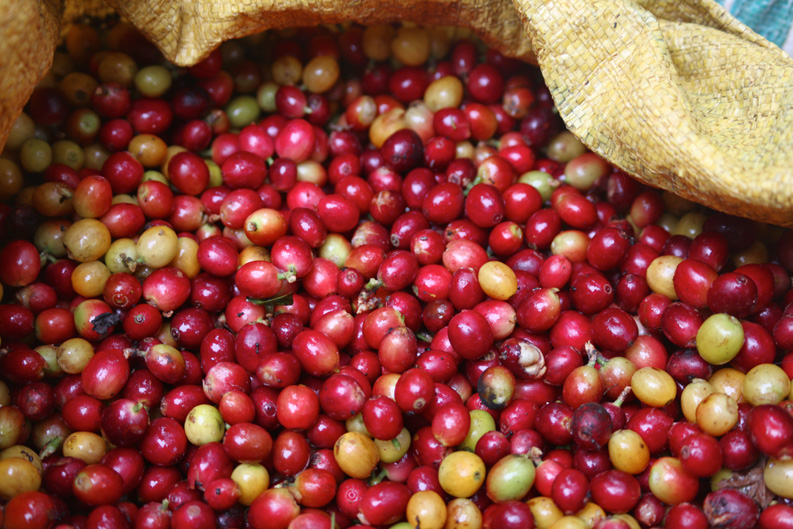Thailand’s Burgeoning Coffee Scene Makes Its Mark

Thailand has long been recognized for its culture, religion and food – and now, Thailand has garnered a reputation for its blossoming coffee scene, as well. Bangkok, the capital city, has a plethora of third wave cafes; and Chiang Mai, the largest city in northern Thailand, has become especially well known for its surrounding coffee farms.
In fact, The Exotic Bean’s coffee is sustainably cultivated just north of Chiang Mai, and you can view photos of Paradise Mountain Organic Farm here. Read on to learn more about the coffee exporting culture that’s swiftly growing in Thailand, and why things are moving so quickly.
Coffee and Taxes in Thailand
Imported coffee beans are heavily taxed in Thailand, and some green beans can be taxed up to 90%! This is the second highest import tax in the world, following India, which taxes 100% on imported coffee beans. The import tax is a strategy to promote local production of the crop by increasing domestic demand, but can often serve to drive up the prices instead.
Currently, Thailand consumes more coffee than they produce, by at least 10 million kilos, which classifies them as a net importer. This could be one of the reasons why Thailand has been a lesser-known competitor in international coffee markets.
Just How Much Is a Latte in Thailand?
Importation tax aside, there are some other factors that affect the price of Thai coffee. For starters, minimum wage is slightly higher in Thailand than in some other coffee-producing countries. Thai minimum wage is 305 THB/day, which equals about $9. For comparison, neighboring Vietnam’s average minimum wage is 125,000 VHD/day, or about $5.50.
Many coffee farms in Thailand are subject to regulations that are aimed at preventing deforestation and the use of machinery to harvest. Coffee farms in Thailand must hire workers to hand-pick the beans, and must pay them the minimum wage. This translates to a more expensive cup of coffee for the consumer. For example, a latte in Thailand costs about 50 baht (or $1.75), while a latte in Vietnam costs about 15,000 dong (about $0.66).
Thai Tourism and Coffee Culture
Chiang Mai is often regarded as the coffee capital of Thailand. It is home to the Royal Coffee Research Center and many of the farms just outside the city offer tours and lodging.
You can learn just what it takes to go from farm to cup, from the people who know it best while on one of these tours. If a plantation tour isn’t your style, there are a number of coffee shops in the main Thai cities that are making a name for themselves when it comes to coffee.
Nine One Coffee is owned by a local, self-taught Thai coffee expert, who grows his own beans. Akha Ama has gained a following due to multiple articles that have featured the business. The company was built by a community collective of 14 families, and has been in business since 2010.

Wasn’t This Article Supposed To Be About Thai Coffee Exporting?!
Only about 7% of coffee produced in Thailand is exported annually. So if you want to become a Thai coffee connoisseur, then you do have to work a little harder. Much of the exported coffee from Thailand is combined into a commodity-grade blend.
In other words, the best way to ensure you are getting a real single-origin, organic, shade-grown Thai coffee is to go to the plantation and see it for yourself. And if that’s not quite in the cards, you can always trust us and buy your coffee from the The Exotic Bean today.
